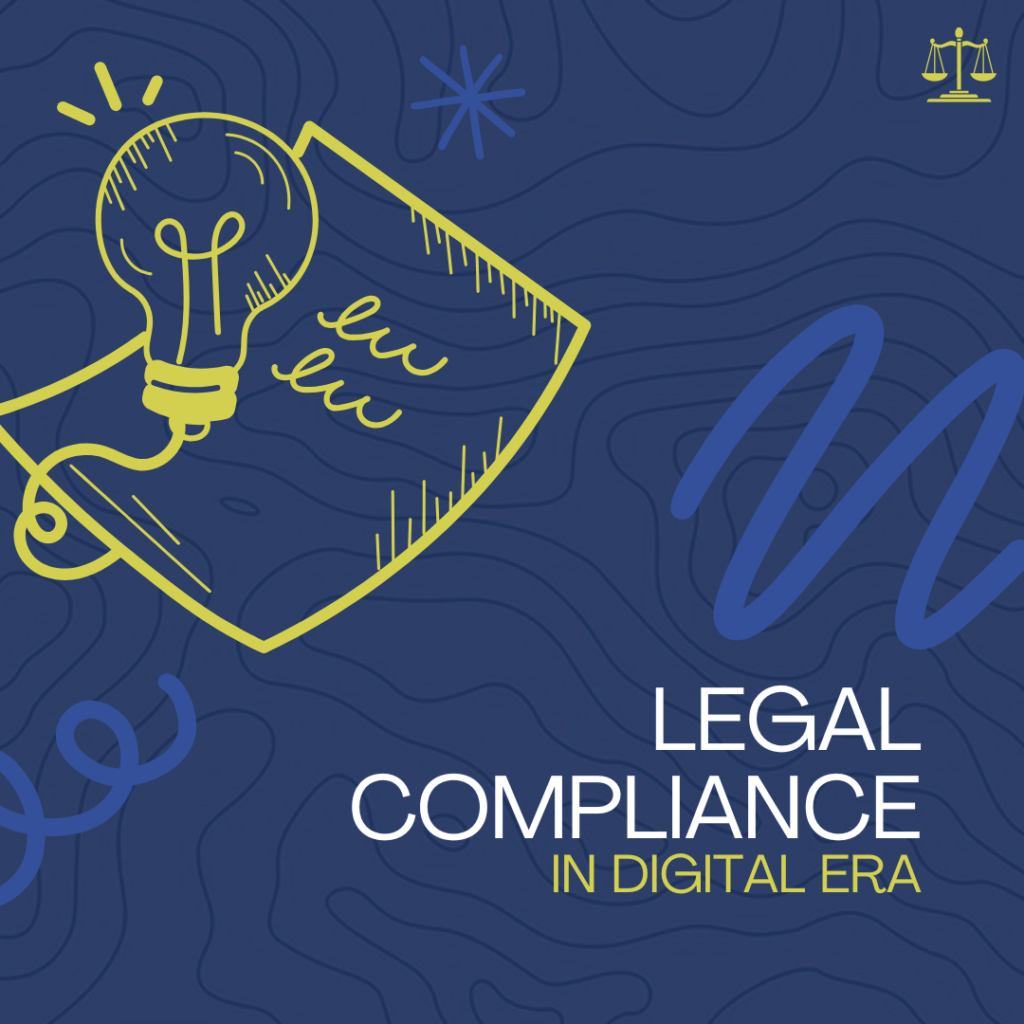Technological advancements have brought significant changes to various aspects of life, including the legal field. Digitalization and automation have improved work efficiency, but they also present new challenges in maintaining ethics and legal compliance. In an era where data is easily accessible and artificial intelligence (AI) is increasingly utilized, ensuring legal compliance in the digital era is crucial for individuals and organizations to understand how technology affects ethical principles and existing regulations.

The Role of Ethics in Technology Utilization
Technology provides convenience in many aspects of life, but it also raises complex ethical dilemmas. For instance, the use of AI in the judicial system can enhance efficiency, but it also raises concerns about fairness and transparency in algorithm-driven decisions. Algorithms may unintentionally produce bias, which can impact the legal and justice system.
Furthermore, individual freedom and privacy are also major concerns. In the book The Age of Surveillance Capitalism by Shoshana Zuboff, it is explained how personal data is often used without clear consent, posing challenges in protecting user privacy in the digital era.
Regulations and Legal Compliance in Technology
Governments worldwide have been striving to regulate technology usage to ensure adherence to legal and ethical standards. For example, the European Union has implemented the General Data Protection Regulation (GDPR), which governs how personal data can be collected, processed, and stored by companies. Meanwhile, in Indonesia, regulations such as the Personal Data Protection Law (UU PDP) aim to safeguard individuals’ privacy rights.
In the book Cybersecurity and Cyberwar by P.W. Singer and Allan Friedman, the importance of regulations in maintaining cybersecurity is discussed, particularly in preventing digital attacks that can harm individuals and businesses. Digital security is a crucial aspect of ensuring legal compliance in the technological era.
Challenges in Maintaining Ethics and Legal Compliance
1. Regulatory Gaps and Technological Advancements
Technological developments often outpace regulations. For example, while industries widely adopt AI and blockchain, lawmakers are still working to establish comprehensive legal frameworks for these technologies.
2. Transparency in AI Usage
AI algorithms often operate as “black boxes,” making it difficult for humans to understand their mechanisms. This lack of transparency complicates oversight and accountability when errors or misuse of technology occur.
3. Data Security and Privacy
In the digital era, data is a highly valuable asset. However, many companies have yet to implement adequate data protection measures, making them vulnerable to data breaches and misuse of personal information.
Solutions for Ensuring Ethics and Legal Compliance
- Enhancing Digital Literacy
All stakeholders, including individuals and businesses, must improve their understanding of ethics and legal compliance in technology usage.
- Collaboration Between Government and Industry
Developing adaptive and flexible regulations requires cooperation between regulators and industry players. This ensures that laws keep pace with technological advancements without stifling innovation.
- Implementing the “Ethical by Design” Principle
Tech companies should integrate ethical considerations into their technology from the outset. For example, they must ensure their products do not contain biases that could harm specific groups.
Conclusion
Technological advancements offer significant benefits to society. However, they also pose challenges in maintaining ethics and legal compliance. Therefore, strong regulations, transparency in technology usage, and awareness of the importance of privacy and data security are essential steps to ensuring responsible technology use. By adopting these measures, we can create an ethical and legally compliant digital ecosystem that maximizes benefits for all stakeholders.
